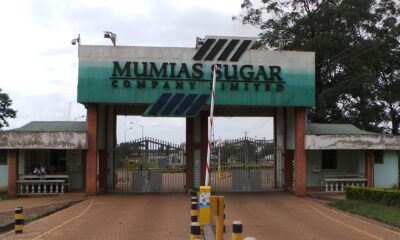Investigations
American Couple Agrees to Withdraw Ksh.220M Fraud Case Against Julius Mwale After Out-of-Court Deal
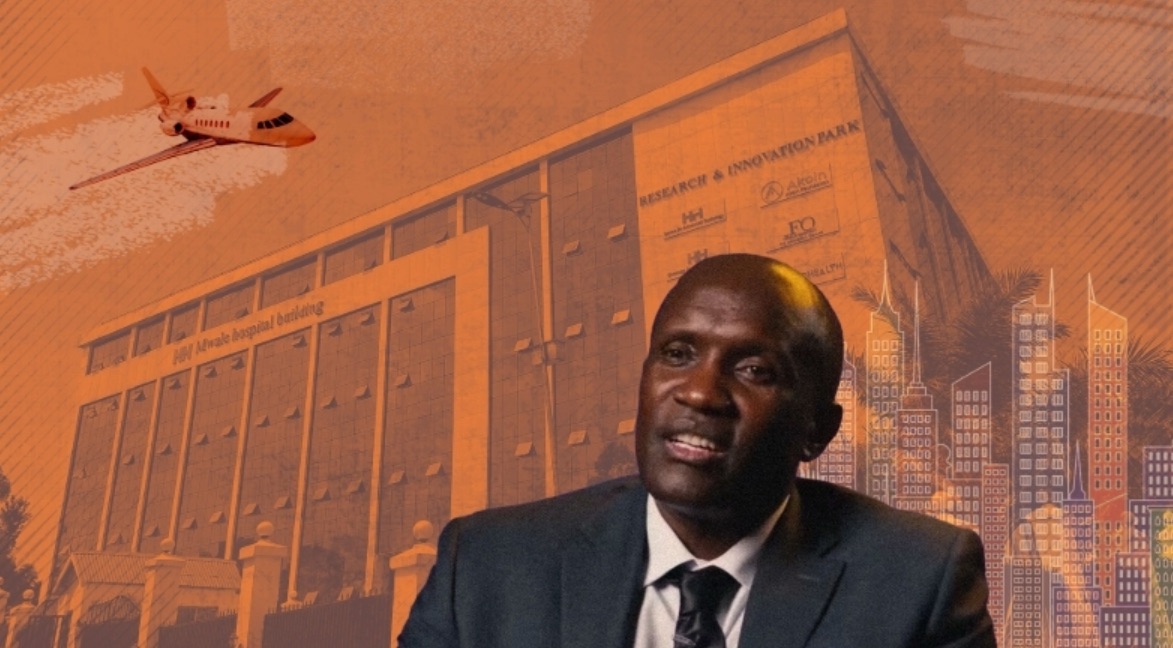
New York/Nairobi – May 27, 2025
Despite recent headlines claiming a U.S. court “dismissed” a multimillion-shilling fraud case against controversial Kenyan-born businessman Julius Mwale, court documents reveal a different story.
The lawsuit was not dismissed by the court but voluntarily withdrawn by the plaintiffs after reaching a private settlement.
The withdrawal was filed on May 23, 2025, after the case transferred from Utah to the Southern District of New York.
According to PacerMonitor documents reviewed by Kenya Insights, Mathew and Brooke Shaw—an American couple who accused Mwale and his wife Kaila of defrauding them of $1.7 million (approximately Ksh.220 million)—agreed to withdraw their case “without prejudice,” meaning they retain the right to refile in the future.
This distinction contradicts the narrative promoted by Mwale’s sympathizers and PR machinery that has characterized the outcome as exoneration.
The court made no determination regarding wrongdoing; rather, the plaintiffs chose to halt legal proceedings after reportedly securing Mwale’s agreement to refund the disputed amount.
A source familiar with the case confirmed the withdrawal resulted from a private settlement agreement, not judicial vindication of Mwale’s conduct.
A Pattern of Alleged Deception
Mwale markets himself as the visionary behind Kenya’s $2 billion Mwale Medical and Technology City (MMTC), positioning himself as a philanthropist and transformative investor.
However, court records and legal filings reveal a troubling pattern of alleged fraud and misrepresentation spanning two continents.
The Shaws’ case represents the latest chapter in a series of legal battles that portray Mwale as someone who exploits trust and misrepresents his wealth to attract investors into questionable schemes.
A timeline of alleged fraud
The Shaws first encountered Mwale at a private Utah dinner in February 2022.
From the beginning, Mwale and his wife presented themselves as ultra-wealthy investors with global connections.
They claimed ownership of a $250 million wine collection, an $870 million jewelry reserve, and a private jet—later revealed to be leased.
The couple invoked prominent names including Senator Mitt Romney, Google CFO Ruth Porat, and UN officials to establish credibility.
Mwale presented what turned out to be a fictitious team, including a purported “rocket scientist from Boeing” and “former Kofi Annan aide.”
By mid-2022, the Shaws had transferred over $1.7 million to Mwale, believing they were investing in a Democratic Republic of Congo battery factory and geological surveys for African smart cities.
Mwale promised 20% annual returns, characterizing their investment as a secure “loan” backed by his company Tumaz and Tumaz, which he falsely valued at $60 billion.
The unraveling
Investigation revealed the promised ventures did not exist, and the investments produced no returns. Background checks exposed extensive litigation history, dissolved companies, unpaid debts, and failed patents. Notable cases include:
- In 2010, Mwale’s SBA Technologies was dissolved following investor lawsuits over unreturned funds
- In 2012, a New York court ordered him to refund $266,000 to medical professionals who invested in his failed tech startup
- In 2015, a Manhattan landlord pursued over $209,000 in unpaid rent and interest
- Separate litigation resulted in orders to repay over $150,000 borrowed from a New York attorney
Despite this litigation history, Mwale maintains an active social media presence projecting success through appearances with African presidents, tech leaders, and at high-profile events. This digital strategy has obscured years of legal troubles, potentially misleading prospective investors.
Questions surrounding the Kenyan venture
Following his U.S. legal difficulties, Mwale pivoted to Kenya in 2015, establishing Tumaz and Tumaz Enterprises to develop the MMTC project in Butere, Kakamega County.
While the initiative has attracted government attention, questions persist regarding funding transparency, project valuations, and Mwale’s track record of meeting financial obligations.
Some investors now view MMTC skeptically, concerned the project—promoted as a transformative health-tech city—may serve primarily as a vehicle for personal enrichment and reputation rehabilitation.
Implications
The voluntary withdrawal of the Shaws’ case does not constitute legal vindication. The “without prejudice” designation preserves their right to resume litigation, and the emergence of other alleged victims in both the U.S. and Kenya suggests Mwale’s legal challenges may continue.
For investors considering opportunities associated with Mwale, this episode underscores the critical importance of thorough due diligence, financial transparency, and healthy skepticism toward investment presentations that may not withstand scrutiny.
Mwale’s recent escape from New York litigation reflects settlement negotiations rather than judicial exoneration. The evidence suggests someone who has managed to delay legal consequences through financial agreements, not someone proven innocent of wrongdoing. Given the ongoing pattern of allegations and previous court orders, Mwale presents significant risks for investors in African innovation and development projects.
The distinction between settlement and vindication matters—for justice, for future potential victims, and for the integrity of investment opportunities across Africa’s growing technology sector.
Kenya Insights allows guest blogging, if you want to be published on Kenya’s most authoritative and accurate blog, have an expose, news TIPS, story angles, human interest stories, drop us an email on [email protected] or via Telegram
-

 News6 days ago
News6 days agoKenyan Driver Hospitalized After Dubai Assault for Rejecting Gay Advances, Passport Seized as Authorities Remain Silent
-

 Business2 weeks ago
Business2 weeks agoKakuzi Investors Face Massive Loss as Land Commission Drops Bombshell Order to Surrender Quarter of Productive Estate
-

 Investigations2 weeks ago
Investigations2 weeks agoINSIDER LEAK REVEALS ROT AT KWS TOP EXECUTIVES
-
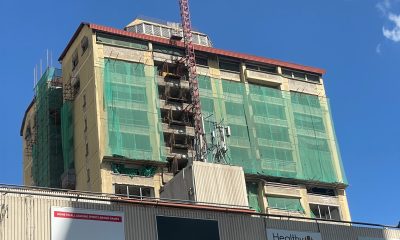
 Business6 days ago
Business6 days agoConstruction Of Stalled Yaya Center Block Resumes After More Than 3 Decades and The Concrete Story Behind It
-

 Investigations1 week ago
Investigations1 week agoCNN Reveals Massive Killings, Secret Graves In Tanzania and Coverup By the Govt
-
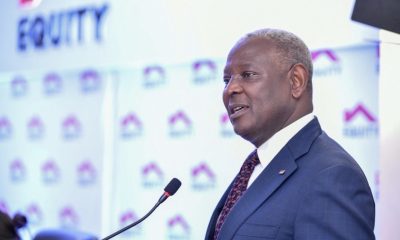
 Business2 weeks ago
Business2 weeks agoBANKS BETRAYAL: How Equity Bank Allegedly Helped Thieves Loot Sh10 Million From Family’s Savings in Lightning Fast Court Scam
-

 Investigations1 week ago
Investigations1 week agoHow Somali Money From Minnesota Fraud Ended In Funding Nairobi Real Estate Boom, Al Shabaab Attracting Trump’s Wrath
-
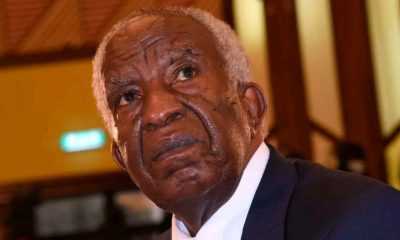
 News2 weeks ago
News2 weeks agoEXPOSED: How Tycoon Munga, State Officials, Chinese Firm Stalled A Sh3.9 Trillion Coal Treasure In Kitui



